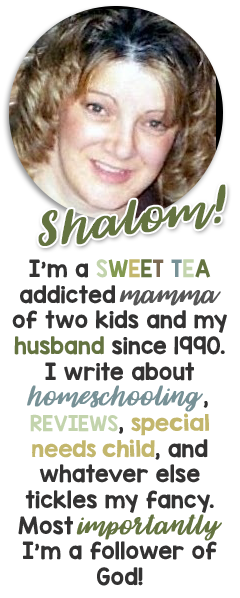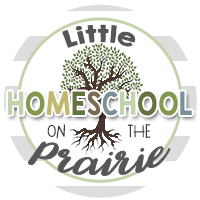Progeny Press Literature Guides Review
Disclaimer: I
received a FREE copy of this product through the HOMESCHOOL REVIEW CREW in
exchange for my honest review. I was not required to write a positive review
nor was I compensated in any other way.
We do a lot of reading literature in our homeschool. I love it when I can find resources to enhance the books that we read. This is the first time my family used Progeny Press with our literature books.
My family has been exploring the literature guides for My Side of the Mountain Study Guide and Animal Farm Study Guide the last few weeks. I received a PDF download for both Study Guides and the Answer Keys. You can order it as a physical Printed Workbook or on a CD. The CD you can print out the pages or type the answers directly into the document. If you don’t own the books you can order the books that accompany the guides from Progeny Press too.
Progeny Press literature studies cover K-12th grade. They break their guides down by grades: Lower Elementary (K-3rd), Upper Elementary (3rd-6th), Middle School, and High School. They recommend that you read the book first before beginning the study guide.
Before you begin you will need a dictionary, thesaurus, Bible, books for the guides, and access to the internet. There are resources to look up online to enhance the guides.
Plan around 8 to 10 weeks for middle school and high school to complete each unit study. Usually one section a week is completed.
 |
| Answer Key for Animal Farm Study Guide, both guides are similar |
The Answer Key for both guides is basic and gives you all the information needed to grade your students work. It’s straight forward and is broken down in a format that you can quickly locate the chapter or section you are working on to grade.
 |
| Information about the book's author |
Both study guides have a short biography about the Study Guide’s author and the author of the book you are using. A Table of Contents is also provided at the beginning of both guides. There is some information provided about using the guides and how you can put together a final test
My Side of the Mountain Book and Study Guide
The book is written by author Jean Craighead George. At the beginning of the study guide there is a brief synopsis of the story. My paraphrase of the story: Sam is a teenager who lives in New York with 11 of his family members in one apartment. He has heard about his great-grandfather’s homestead up in the Catskill Mountains. He desires solitude and to live off the land. He has forty dollars to his name and a few vital supplies. Sam does really well surviving months in the wildness by himself. He meets a few strangers that assist him and he helps them. He also captures a young falcon which he names Frightful. He trains her to hunt for him and is a constant companion.
Eventually word gets out about a “wild boy” up in the mountains and reporters search for him. Sam’s family joins him eventually and decides to build a home there.
My 14 year old son worked on the study guide independently. We read this book as a family back in April before we knew we would receive this Study Guide.
 |
| My son had to revisit a few chapters to complete his work. I think he was reading the book again! |
My son went into this thinking it would be a breeze. He found that a few times he had to go back into certain sections to review parts of the book to help him recall some of the information. The guide had a few pre-reading activity suggestions like camping, observing the animals and trees around you. You have to imagine what it would be like living on your own and what would you eat. Another suggestion is going fishing. Think about what bait you would use. What materials could you use to make your own fishing rod? Another suggestion was researching local plants with suggested book resources.
 |
| A few local plants that he photographed and had to research. |
My son decided to research the local plants in our front yard. I helped him some and he read up on the plants and wrote a brief paper on them. He had to do four plants from my garden.
This literature guide contains 63 pages and is broken down in 8 sections and his for grades 5-8. Each of the sections have the same format:
 |
| A few examples of the vocabulary words in the Study Guide |
Vocabulary Words: There are several different exercises with vocabulary throughout. It may have you match the word to the definition using a dictionary, a multiple choice option to fill in the blank from a sentence, fill in the blank with synonyms using a dictionary or thesaurus, look up the definition and write your own sentence, put them in alphabetical order and write out the definition.
 |
| Add caption |
Questions: Eight comprehensive questions about the section of the book. Examples: “How does Sam know which plants are safe to eat” or “What happens when Sam puts food out for a party?”
Thinking About the Story: This goes above the comprehensive questions and as a lot more details. Some may include grammar concepts, anthropomorphism, and point of view, examining motives, how they feel, or character issues.
Dig Deeper: This is the Biblical portion of the study guide that deals with principle, relationship, conflict, other topics. A scripture reading is also provided in this section. One questions ask, “What does that scripture tell you to do in times of fear?”
 |
| This is just one example of the many other activities you can do |
Optional Projects and Activities: This brings in the hands on learning and each chapter gives you several options to choose from. You can make a recipe, make a journal, climbing activity, make a wooden toy, research, Bible activities, and much more.
Since we read the book in April my son didn’t have to pre-read the book first. He started immediately. Each section he spread out in a week himself, he knew that he had to complete one section a week. He made his own schedule and worked anywhere from 2-3 days a week depending on his other assignments. He has completed 5 of the sections. He did not to do any more of the Optional Projects and Activities.
He preferred typing his answers into the PDF format.
Synopsis: Animal Farm by George Orwell is a story takes place in the farmyard. The story has an allegorical meaning throughout. The animals are unhappy with the management, which are humans. The animals seize the farmer’s land and create a co-op. They combine labor to help one another out. Some animals are benefiting more and rules are changing mysteriously. The pigs seem to be taking over. Other animals are seeing that their freedom is not what it all seems or hoped.
This is a political allegory that depicts the civil issues of Russia and mirrors the Russian Revolution.
The study guide is for grades 9-12. The format is basically the same as the other study guide. It has information on the study guide author and book author, information on how to use, and table of contents. This is very much intended for high school. The first part has background information about the different governing and economical system. Not to repeat myself to much I’ll give a brief overview of the sections with more content.
Pre-Reading Activities: for this one include studying the Russian Revolution, research Stalin’s rise to power, research Soviet Unions international power prior to War World I and a few key people, research the meaning of an allegory and there are some suggest book reads, and some information that is prevalent to the author’s life.
 |
| A completed Vocabulary worksheet |
Vocabulary: you have words like: ensconced, vivacious, indefatigable, posthumously, blithely, capitulated, retinue, piebald, and more.
 |
| A few of the questions my daughter wrote down and some orally. |
Dig Deeper: like the previous guide Biblical principle in explored here. This really does dig in deep with the characters and principle and looking at it through the lens of a Biblical Worldview. One has you reading a scripture verses and analyzing how certain characters mirror a particular scripture.
 |
| A nice variety to choose from with the activities |
Optional Projects and Activities: There is a lot of research and writing activities available in this guide. Some topics are windmills, Soviet famine, and freedom of the press, comparison and contrast paper just to name a few. Hands on activities are how would you building a generator, art project, design a flag, and of debate topics.
There is an extensive list of books in the Additional Resources at the back of the Study Guide.
 |
| My daughter working on her vocabulary. I would read the definition of the word from the dictionary and she would match it up on the paper. |
For this study guide I did this with my 17 year old special needs daughter. With my daughters learning challenges I choose to do a chapter at a time. I read the whole book myself quickly in a few days. I helped her work on the study guide. She doesn’t care to type so I printed out the pages as needed. Despite her struggle with writing I always have her do some. The majority of it we did orally for her to not get overwhelmed and frustrated. We did move quicker through the study guide with us doing some of it orally. Some of it was way over her head and I had to really work to explain some of the questions with her. However I do feel that she able to comprehend many of the topics discussed. With the animals being the main players it grabbed her attention and kept her riveted to the story which in turn helped her comprehend several of the topics.
Animal
Farm Study Guide is rich in resources and could easily be stretched out as a year study
if you do the activities and a paper after each section and look into the other book resources. We didn’t do any of
this with my daughter. I do look forward to having my son do this in the
future.
Website Facebook Twitter YouTube Pinterest
Progeny Press allowed the Homeschool Review Crew to check out several other Study Guides: A New Coat for Anna (grades K-3), In the Year of the Boar and Jackie Robinson(grades 4-6), and Little Women (grades 8-12). Click here or on the graphic below to see what
the other 63 reviewers think.


Search This Blog
Grab my button!

Followers
Homeschool Planet
Popular Posts
-
\\\\\ About the Book Boo k: Plain Jane’s Secret Admirer (The Heart of the Amish Book 11) Author: Anne Blackburne Genre: Amish/Christia...
-
We are learning about the Viking in our history studies. What better way the enhance the learning by adding a craft to the mix. With my kid...
-
Last week during our study of the Inca culture the kids made an Inca Quipus. If you are not familiar with what a quipus I will try to give...
-
I’m always excited to share with you products from Memoria Press ! The last few weeks my son has been learning a lot with Classical Com...
-
Disclaimer: I received a FREE copy of this product through the HOMESCHOOL REVIEW CREW in exchange for my honest review. I was not required t...




























0 comments:
Post a Comment
Thank you for visiting my blog.